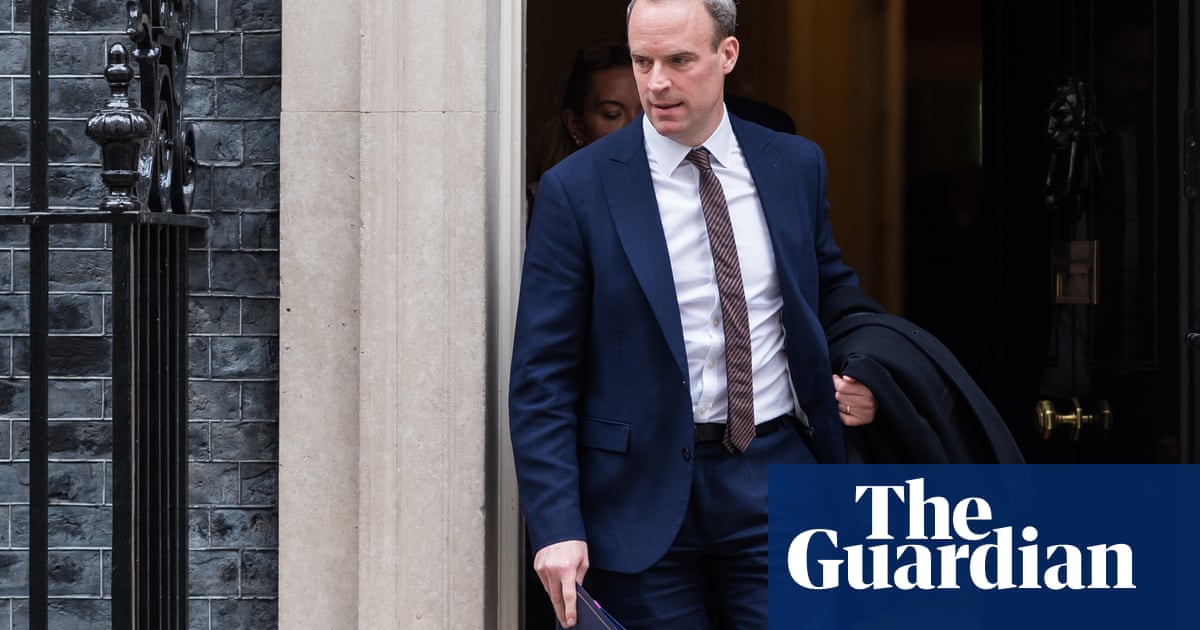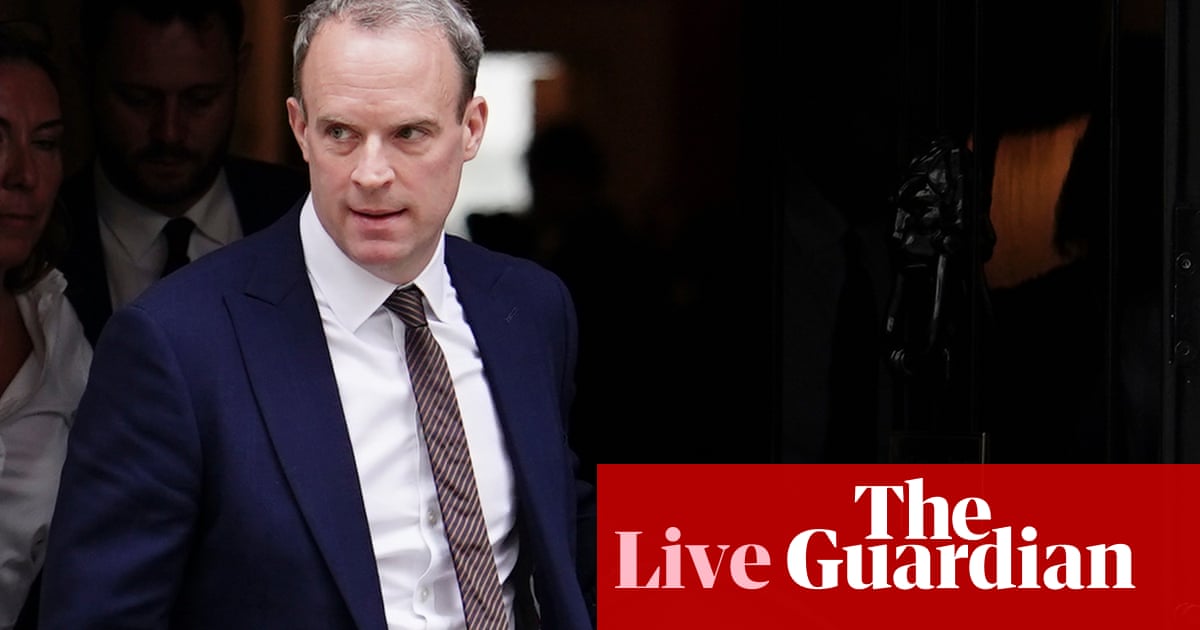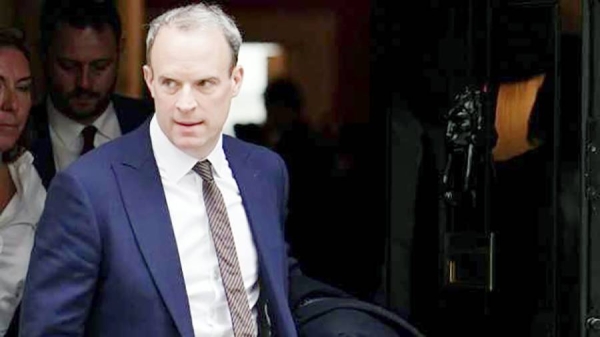
Dominic Raab was fighting for his political life as the prime minister pored over a “stinging” report into bullying allegations that will decide the future of one of his closest allies.
Government sources suggested that Raab wanted to be allowed to stay on as deputy prime minister and justice secretary despite what were said to be searing findings from the five-month inquiry into claims of bullying by civil servants.
Rishi Sunak spent hours on Thursday afternoon examining the report by Adam Tolley KC, which has not concluded whether Raab broke the ministerial code, leaving the final decision to the prime minister.
According to one Ministry of Justice source, Raab was battling to stay in post, believing the findings – which he has read – do not mean he should have to resign. By Thursday evening, however, he and Sunak had yet to hold any direct discussions.
Senior Conservative MPs privately accused Sunak of “dithering” – a criticism also levelled by Labour and the Liberal Democrats. Government insiders were said to be bracing to issue a swift announcement about Raab’s removal or resignation on Thursday, and also took the lack of a decision by Sunak as a sign of hesitation.
Downing Street sources stressed that Sunak wanted to be seen to be following due process throughout the investigation, sticking to his pledge to lead a government of integrity and accountability. He was said to be continuing to thoroughly read the report – described by one person with knowledge of its contents as “stinging” – before deciding whether to sack Raab.
Alleged victims of Raab’s said they feared Sunak’s failure to reach an immediate decision meant the justice secretary might remain in post.
One of those who made an official complaint said: “It’s immensely disappointing that at this late stage of the investigation, the process is still being dragged out. Political manoeuvring is still being prioritised over the welfare of public servants, at a time when Sunak needs to send a clear and decisive message about decency and standards in government. If Raab manages to hang on, my colleagues and I will feel like we’ve been completely shafted.”
Another said: “Any hopes I had that maybe justice might be done are now obliterated.”
Sunak will examine how the allegations and evidence stack up against the ministerial code, which states that “bullying or other inappropriate or discriminating behaviour … will not be tolerated.”
Some of the prime minister’s allies warned of the risks of dropping such a senior figure from the cabinet at a time when the Conservative party was enjoying a fragile peace.
Sunak’s spokesperson said on Thursday that he continued to have confidence in Raab, but was “carefully considering” the document.
Angela Rayner, Labour’s deputy leader, used the row to paint Sunak as being focused on his own political predicament instead of the pressing issues facing the public.
She said: “While the prime minister dithers and delays, trying to summon up the guts to sack his own deputy, working people are battling the worst cost of living crisis for a generation – food bills and mortgage rates are rising, wages are stagnating, and too many of us are waiting months and even years for health treatment.
“While the Tories are yet again mired in chaos, Labour is focused on cutting the cost of living, cutting crime, and cutting waiting lists with our long-term plan to give Britain its future back.”
Senior Tories privately voiced similar concerns. One former cabinet minister vented: “How hard can it be to make a decision?” Another MP argued that if the report was damning, Raab should quit of his own accord, but added: “That shouldn’t be relied on as the sole strategy. The PM shouldn’t be worried about doing what might be necessary.”
Allegations first emerged in November that Raab had bullied and belittled staff, driving some to tears or causing them to vomit before meetings. The inquiry by Tolley has taken nearly 150 days, leading to growing impatience among some complainants.
Raab denies all the allegations against him, believing he has acted professionally at all times. But if he refuses to go and Sunak resists sacking him, senior officials in the Ministry of Justice have threatened to quit.
Insiders have said that senior civil servants up to director general level are “ready to stand down”, which would pose a problem for Sunak as he grapples with issues such as the courts backlog and boosting the battered morale of some officials.
Permanent secretaries at three departments were interviewed or gave written evidence as part of Tolley’s inquiry: Antonia Romeo from the Ministry of Justice, Simon McDonald, previously of the Foreign Office; and Philip Rycroft, who was the highest-ranking official at the now disbanded Brexit department.












